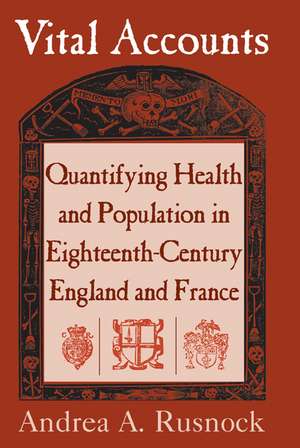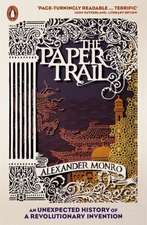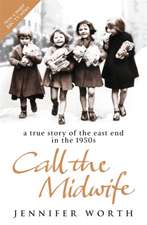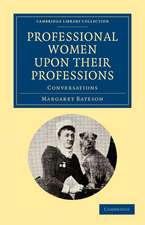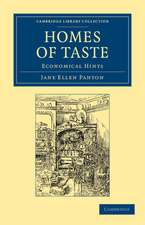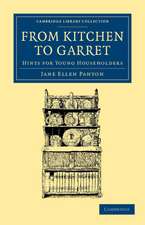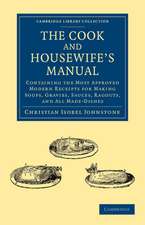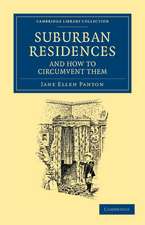Vital Accounts: Quantifying Health and Population in Eighteenth-Century England and France: Cambridge Studies in the History of Medicine
Autor Andrea A. Rusnocken Limba Engleză Paperback – 11 feb 2009
| Toate formatele și edițiile | Preț | Express |
|---|---|---|
| Paperback (1) | 285.75 lei 43-57 zile | |
| Cambridge University Press – 11 feb 2009 | 285.75 lei 43-57 zile | |
| Hardback (1) | 694.23 lei 43-57 zile | |
| Cambridge University Press – 15 sep 2002 | 694.23 lei 43-57 zile |
Din seria Cambridge Studies in the History of Medicine
- 5%
 Preț: 842.69 lei
Preț: 842.69 lei - 5%
 Preț: 328.68 lei
Preț: 328.68 lei -
 Preț: 286.69 lei
Preț: 286.69 lei - 5%
 Preț: 403.07 lei
Preț: 403.07 lei - 5%
 Preț: 263.87 lei
Preț: 263.87 lei - 5%
 Preț: 294.37 lei
Preț: 294.37 lei - 5%
 Preț: 837.35 lei
Preț: 837.35 lei - 5%
 Preț: 314.62 lei
Preț: 314.62 lei - 5%
 Preț: 344.98 lei
Preț: 344.98 lei - 5%
 Preț: 199.17 lei
Preț: 199.17 lei - 5%
 Preț: 336.86 lei
Preț: 336.86 lei - 5%
 Preț: 351.56 lei
Preț: 351.56 lei -
 Preț: 277.26 lei
Preț: 277.26 lei - 5%
 Preț: 301.61 lei
Preț: 301.61 lei - 5%
 Preț: 431.51 lei
Preț: 431.51 lei - 5%
 Preț: 422.85 lei
Preț: 422.85 lei - 5%
 Preț: 423.05 lei
Preț: 423.05 lei - 5%
 Preț: 858.07 lei
Preț: 858.07 lei - 5%
 Preț: 283.01 lei
Preț: 283.01 lei - 5%
 Preț: 374.77 lei
Preț: 374.77 lei - 5%
 Preț: 745.59 lei
Preț: 745.59 lei - 5%
 Preț: 435.44 lei
Preț: 435.44 lei - 5%
 Preț: 309.58 lei
Preț: 309.58 lei -
 Preț: 447.05 lei
Preț: 447.05 lei - 5%
 Preț: 307.58 lei
Preț: 307.58 lei - 5%
 Preț: 900.51 lei
Preț: 900.51 lei - 5%
 Preț: 275.09 lei
Preț: 275.09 lei - 5%
 Preț: 399.56 lei
Preț: 399.56 lei - 5%
 Preț: 392.70 lei
Preț: 392.70 lei - 5%
 Preț: 425.23 lei
Preț: 425.23 lei - 5%
 Preț: 404.19 lei
Preț: 404.19 lei - 5%
 Preț: 349.34 lei
Preț: 349.34 lei - 5%
 Preț: 285.19 lei
Preț: 285.19 lei -
 Preț: 282.87 lei
Preț: 282.87 lei - 5%
 Preț: 306.74 lei
Preț: 306.74 lei
Preț: 285.75 lei
Nou
Puncte Express: 429
Preț estimativ în valută:
54.68€ • 56.77$ • 45.60£
54.68€ • 56.77$ • 45.60£
Carte tipărită la comandă
Livrare economică 24 martie-07 aprilie
Preluare comenzi: 021 569.72.76
Specificații
ISBN-13: 9780521101233
ISBN-10: 0521101239
Pagini: 272
Ilustrații: 53 b/w illus.
Dimensiuni: 152 x 229 x 17 mm
Greutate: 0.4 kg
Editura: Cambridge University Press
Colecția Cambridge University Press
Seria Cambridge Studies in the History of Medicine
Locul publicării:New York, United States
ISBN-10: 0521101239
Pagini: 272
Ilustrații: 53 b/w illus.
Dimensiuni: 152 x 229 x 17 mm
Greutate: 0.4 kg
Editura: Cambridge University Press
Colecția Cambridge University Press
Seria Cambridge Studies in the History of Medicine
Locul publicării:New York, United States
Cuprins
Introduction; 1. A new science: political arithmetic; Part I. Smallpox Inoculation and Medical Arithmetic: 2. A measure of safety: English debates over inoculation in the 1720s; 3. The limits of calculation: French debates over inoculation in the 1760s; 4. Charitable calculations: English debates over the inoculation of the urban poor, 1750–1800; Part II. Medical Arithmetic and Environmental Medicine: 5. Medical meteorology: accounting for the weather and disease; 6. Interrogating death: disease, mortality and environment; Part III. Political Arithmetic: 7. Count, measure, compare: the depopulation debates; Conclusion; Bibliography; Index.
Recenzii
"An excellent overview of a vital, though hitherto neglected , dimension of eighteenth-century history." The International History Review
"the wide range of issues raised by the author, and her ability to contextualize the complex web of interactions among science, institutions and social processes and to refute simplistic and essentialist views on 'the power of numbers', makes this a valuable contribution on the genesis of social statistics that any historian will benefit from reading." - Paul-Andre Rosental
"Rusnock's book will be of value to historians of medicine and quantification as well as to those interested in the sociology of knowledge and the history of sceince and its social context more generally. Of particular interest is her comparative focus, which allows the book to escape an oversimplified view that sees scientific innovations such as quantification succeeding largely because they were 'right'. The different trajectory of medical quantification in these two countires--so well described by Rusnock--is a powerful argument in favor of a more complex and multitextured explanation, one that can take into account the important differences in the communities of researchers who first used numbers to measure the health and vitality of populations." - Joshua Cole, University of Michigan
"the wide range of issues raised by the author, and her ability to contextualize the complex web of interactions among science, institutions and social processes and to refute simplistic and essentialist views on 'the power of numbers', makes this a valuable contribution on the genesis of social statistics that any historian will benefit from reading." - Paul-Andre Rosental
"Rusnock's book will be of value to historians of medicine and quantification as well as to those interested in the sociology of knowledge and the history of sceince and its social context more generally. Of particular interest is her comparative focus, which allows the book to escape an oversimplified view that sees scientific innovations such as quantification succeeding largely because they were 'right'. The different trajectory of medical quantification in these two countires--so well described by Rusnock--is a powerful argument in favor of a more complex and multitextured explanation, one that can take into account the important differences in the communities of researchers who first used numbers to measure the health and vitality of populations." - Joshua Cole, University of Michigan
Descriere
Rusnock shows how vital accounts became the measure of public health and welfare.
